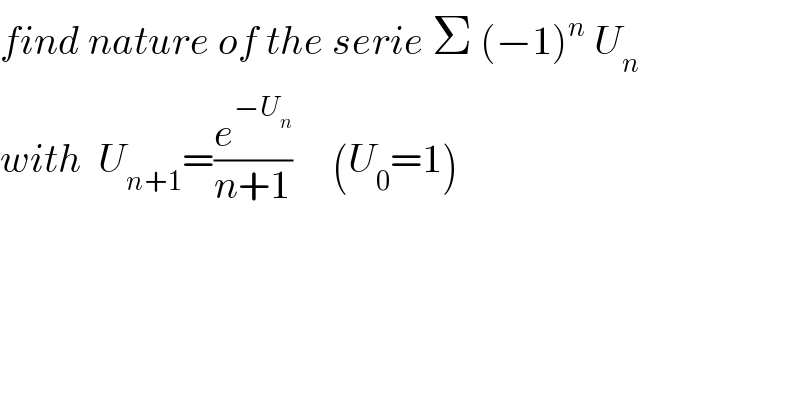
Question and Answers Forum
Previous in Relation and Functions Next in Relation and Functions
Question Number 90743 by abdomathmax last updated on 25/Apr/20

Answered by ~blr237~ last updated on 25/Apr/20
![we can show by induction that U_n ∈ ]0,1] so Σ(−1)^n U_n is an alternated serie then it converges if (U_n ) decrease and converges to zero. we have e^(−u_n ) <u_(n ) ; (1/(n+1))≤1 then u_(n+1) <u_n ∣u_n ∣≤(1/n) cause e^(−u_n ) <1 .so lim_(n→∞) u_n =0](Q90748.png)
Commented by mathmax by abdo last updated on 25/Apr/20

